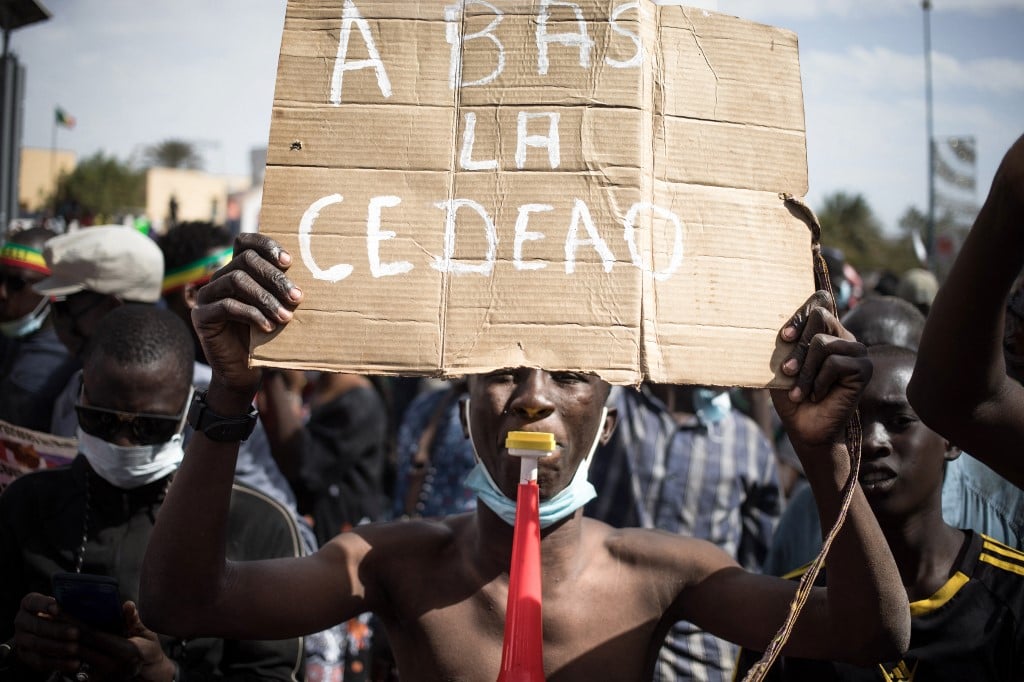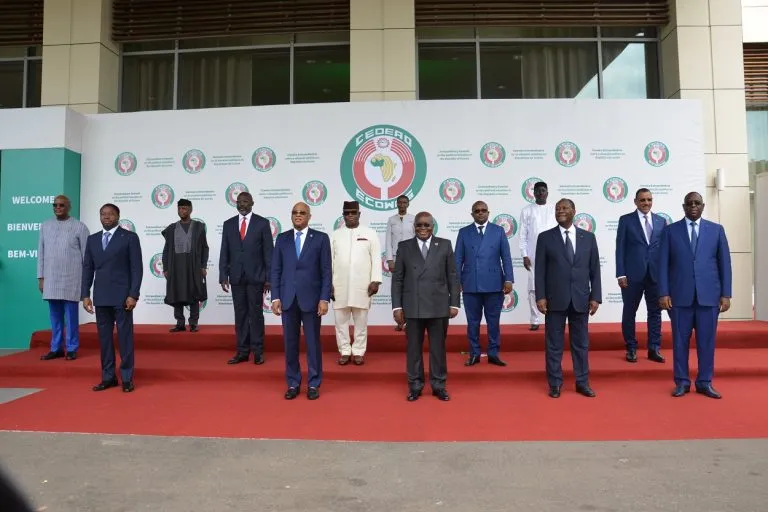Mali’s foreign ministry demanded the departure of France’s ambassador Joël Meyer from the country within 72 hours on Monday.
“The French ambassador to Bamako was summoned and notified of a decision by the government inviting him to leave the national territory within 72 hours following hostile and outrageous comments by the French foreign affairs minister recently,” a government statement said.
The announcement came as French foreign minister Jean-Yves Le Drian condemned Mali’s new leaders as “illegitimate” and “out of control” on Thursday, and accused them of taking “irresponsible measures”.
Drian’s comments came in response to Bamako’s expulsion of around 90 Danish soldiers on Thursday, who had recently arrived in the country to assist European special forces fighting jihadis in the Sahel region.
Tensions between Mali and its former coloniser escalated after France supported sanctions imposed on Bamako by regional grouping ECOWAS on January 9.
The expulsion has raised questions over France’s continued military presence in the country.
On Tuesday the government said it would review the deployment of its Takuba special forces unit in the Sahel tri-border area “between now and mid-February”.
“It is clear that the situation can’t go on like this,” government spokesman Gabriel Attal told Franceinfo radio.
War of words
In a TV interview on Wednesday, a spokesperson for Mali’s transitional military government slammed European powers for flexing their colonial muscle in the country.
“We invite [Denmark] to be careful about some partners who sadly have problems getting rid of their colonial reflexes,” Abdoulaye Maiga told national news broadcaster ORTM1 late on Wednesday according to Reuters.
“We urge [France’s armed forces minister Florence] Parly to show restraint and respect the basic principle of not interfering in the domestic affairs of a state,” he said.
On Wednesday France and 14 other European countries urged the junta in Bamako to allow Danish special forces to remain in the country. Maiga responded that Danish troops should withdraw immediately.
Russian involvement
Relations between Mali and the West broke down in September amid rumours that the transitional government was negotiating a security contract with the Wagner Group, a private Russian military outfit alleged to have close links with the government of the Russia.
In December, 15 countries including France, the UK and Germany, issued a statement condemning Russian involvement in Mali.
Despite the transitional government’s subsequent denial of Russian involvement, the ECOWAS leaders expressed concern at the “deployment of private security agents in Mali with its potentially destabilizing impact on the West Africa region”, in their 9 January declaration.
The sentiment was echoed by the US State Department, which said: “these forces will not bring peace to Mali and will divert resources away from the Malian Armed Forces’ fight against terrorism”.
The ECOWAS leaders also said that “in view of the potentially destabilising impact on Mali and the region, as a result of this transition in Mali,” they had decided “to activate immediately the ECOWAS Standby Force, to enhance its preparedness, should the need arise”.
The ECOWAS Standby force is made up of military, police and civilian components that can provide military support and intervention missions.
Mali bristles under sanctions
Guinea and Mauritania pledged solidarity with Mali in response to economic sanctions imposed by the Economic Community of West African States (ECOWAS). Their borders will therefore stay open for transport of goods to and from Mali.
In a joint statement on 9 January, the 15-member bloc said Mali’s transitional authorities failure to comply with an agreement reached with ECOWAS in September, which maps a return to civilian rule in line with the country’s own Transition Charter, left no option but to impose sanctions.
The sanctions have left the landlocked country isolated and struggling to import goods after neighbours closed borders and cancelled flights.
But in a statement issued on 19 January, Mali’s Foreign Ministry announced that “Guinea and Mauritania reaffirmed their active solidarity and complete readiness to support Mali in these times of difficulty”.
Guinea’s ruling Committee for National Restoration issued a communique on January 15 saying Conakry’s own suspension from all regional institutions in September 2021 meant it would not endorse the regional sanctions.
The country’s land, sea and air borders would remain open to all friendly nations in line with pan-African solidarity, the statement added.
Guinea was suspended from ECOWAS in September last year after its own military coup ousted 81-year-old president Alpha Conde who had ruled the West African state for 11 years.
Mauritania is located in West Africa, but is not a member of the ECOWAS grouping, and therefore not bound by the sanctions.
Anti-France protests rock Bamako
Malians took to the streets on 14 January after the military junta called for protests against the sanctions, which are the strictest measures imposed yet by the bloc in response to two Malian coups in two years.
In Independence Square in the Malian capital Bamako, protesters brandished posters emblazoned with anti-France and anti-ECOWAS slogans such as “Down with ECOWAS”. Western powers including the US and France have backed the latest round of sanctions.
“We have a country divided in two, those who have everything and those who have nothing. And instead of remedying this, ECOWAS imposes sanctions on us. We have no more factories, no more trains, our children are out of work. We are fed up. Leave our authorities alone for our own good,” one protester told pan-African YouTube channel ‘Africa is Watching’.

The sanctions have the potential to suffocate the Malian economy and galvanise support for interim President Assimi Goita, an army colonel who ousted former president Ibrahim Boubacar Keita in 2020, one commentator says.
Stricter sanctions imposed
The 15-nation grouping ramped up sanctions on Mali and activated its standby military force following the failure of transitional authorities in the country to organise elections. The sanctions demand:
- The immediate recall of ECOWAS ambassadors from Mali.
- Closure of land and air borders between ECOWAS countries and Mali.
- Suspension of all commercial and financial transactions with Mali except for food, pharmaceutical and medical products, petroleum products and electricity.
- The freezing of Mali’s assets in ECOWAS central banks and commercial banks and suspension of Mali from all financial assistance and transactions with all financial institutions, particularly the ECOWAS Bank for Investment and Development (EBID) and Banque Ouest-Africaine de Développement (BOAD).
The statement instructs all ECOWAS institutions to implement the sanctions with immediate effect and calls upon the UN, the AU and other partners to support them.
Two coups in two years

Sanctions were originally imposed in August 2020 after a coup led by Colonel Assimi Goita overthrew President Ibrahim Boubacar Keïta, following months of street protests and years of instability.
ECOWAS relaxed sanctions in October 2020 after the Transition Plan for a return to civilian rule within 18 months was drawn up, naming a new transitional government.
However, in May 2021, Goita staged a second coup. ECOWAS decided to impose limited sanctions in December (including freezes on bank accounts and limits on the freedom of movement of coup leaders), but moved to impose full sanctions again on 9 January after the military regime announced that elections might not take place before 2025.
ECOWAS leaders said the new calendar would be tantamount to “tak[ing] the Malian people hostage for five years.”
Security concerns
The military government has argued that establishing security in the country was necessary before elections could be carried out. Large swathes of the country have remained outside government control for years due to jihadist and separatist insurrections.
French troops helped to regain control of large parts of the north in 2013 and France has continued its presence in the country as part of its wider Operation Barkhane counter-insurgency activities in the Sahel.
However, the operation has become increasingly unpopular in both France and Mali, and the former colonial power has begun a draw-down of troops, who are being partially replaced with a European force known as Tabuka.

Want to continue reading? Subscribe today.
You've read all your free articles for this month! Subscribe now to enjoy full access to our content.
Digital Monthly
£8.00 / month
Receive full unlimited access to our articles, opinions, podcasts and more.
Digital Yearly
£70.00 / year
Our best value offer - save £26 and gain access to all of our digital content for an entire year!
 Sign in with Google
Sign in with Google 



